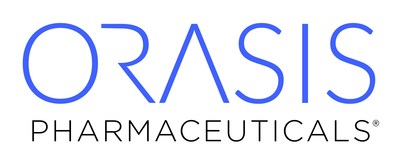Orasis Pharmaceuticals today announced that the Phase 3 NEAR-1 and NEAR-2 clinical trials, which evaluated the efficacy and safety of CSF-1, its novel eye drop candidate, met their primary and key secondary endpoints.
|
- Phase 3 NEAR-1 and NEAR-2 clinical trials met primary and key secondary endpoints - Presbyopia is the loss of ability to focus on near objects as a result of the natural aging process and affects more than 120 million people in the U.S. - Data from these trials (N=613) will be the basis for regulatory submission in the U.S. in the second half of 2022 PONTE VEDRA, Fla., April 21, 2022 /PRNewswire/ -- Orasis Pharmaceuticals, an emerging ophthalmic pharmaceutical company focused on developing a unique eye drop to improve near vision for people with presbyopia, today announced that the Phase 3 NEAR-1 and NEAR-2 clinical trials, which evaluated the efficacy and safety of CSF-1, its novel eye drop candidate, met their primary and key secondary endpoints. Additional details of these trials will be presented at future medical meetings and will serve as the basis for the New Drug Application submission to the U.S. Food and Drug Administration (FDA) in the second half of 2022. In both trials, CSF-1 met its primary and key secondary endpoints on Day 8, achieving statistically significant 3-line or more gain in distance-corrected near visual acuity (DCNVA), and no loss of 1-line or more in distance visual acuity. Pooled across the two studies, 40% and 50% of participants demonstrated these gains 1-hour post-dose 1 and 1-hour post-dose 2 respectively (P<0.0001). CSF-1 also achieved statistically significant 3-line improvement at all measured time points on Days 1 and 15. On Day 15, participants achieved statistically significant 3-line or more improvement in DCNVA as early as 20 minutes and up to 8 hours post-dose 1. In addition, CSF-1 demonstrated an excellent tolerability and safety profile, with comparable redness and comfort versus vehicle, validating the preservative-free presentation and proprietary formulation of CSF-1. The most common treatment-related adverse events of headache and instillation sight pain occurred in only 6.8% and 5.8% of participants, respectively. Of all CSF-1 participants, only 2.6% reported moderate treatment-related adverse events. All other adverse events were mild. These results were achieved with a minimum effective dose of pilocarpine hydrochloride at 0.4%, which is less than one-third the concentration of the commercially available treatment. With a proprietary vehicle, CSF-1 is formulated preservative-free and provides for dosing flexibility with a comfort and safety profile that does not compromise distance or night vision. "Currently, optometry delivers 85% of all comprehensive eye care exams, making a difference in the vision of so many patients," said Paul Karpecki, O.D., FAAO. "New and existing presbyopia patients will come into an optometry practice that now offers presbyopia drops, as well as contact lenses and spectacles – all playing a role in the management of the patients looking for options." "These statistically significant and clinically meaningful results are promising as eye care providers are eager to find alternate treatment options to improve quality-of-life for their patients with presbyopia, many of whom rely solely on reading glasses, which can be cumbersome," said Edward Holland, M.D., Professor of Ophthalmology, University of Cincinnati and Director of Cornea, Cincinnati Eye Institute. "Based on the efficacy and excellent tolerability demonstrated with such a minimum effective dose, I would see CSF-1 as a clear place to start many presbyopia patients." "We are extremely pleased with these positive results, which mark a significant milestone for CSF-1 and Orasis, and they position us well to be the next product to launch in this exciting category," said Elad Kedar, Chief Executive Officer of Orasis Pharmaceuticals. "The potential of CSF-1 to provide a first-line treatment option for people living with presbyopia is promising and we look forward to working with regulatory authorities to advance CSF-1 toward commercialization." To provide strategic options for CSF-1, Orasis plans to initiate a safety study with the option to extend long-term. About the Studies For more information about the studies, please visit NEAR-1 and NEAR-2. About CSF-1 About Presbyopia About Orasis Pharmaceuticals Media Contact:
SOURCE Orasis Pharmaceuticals |





